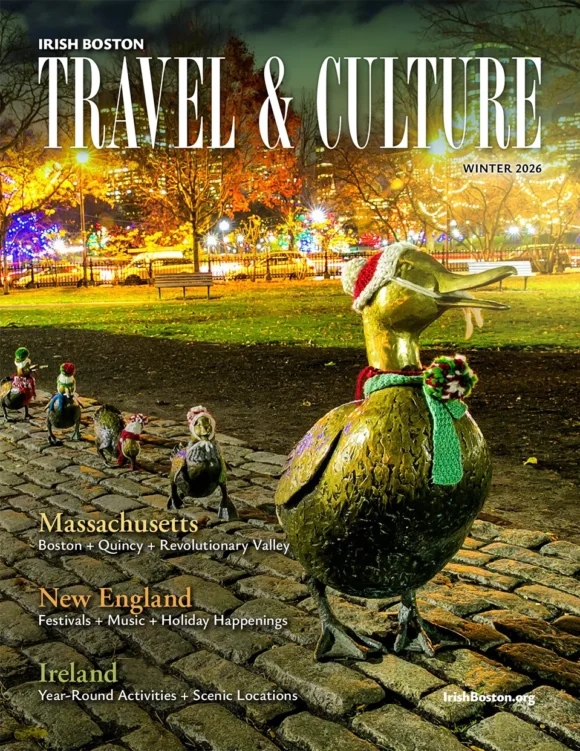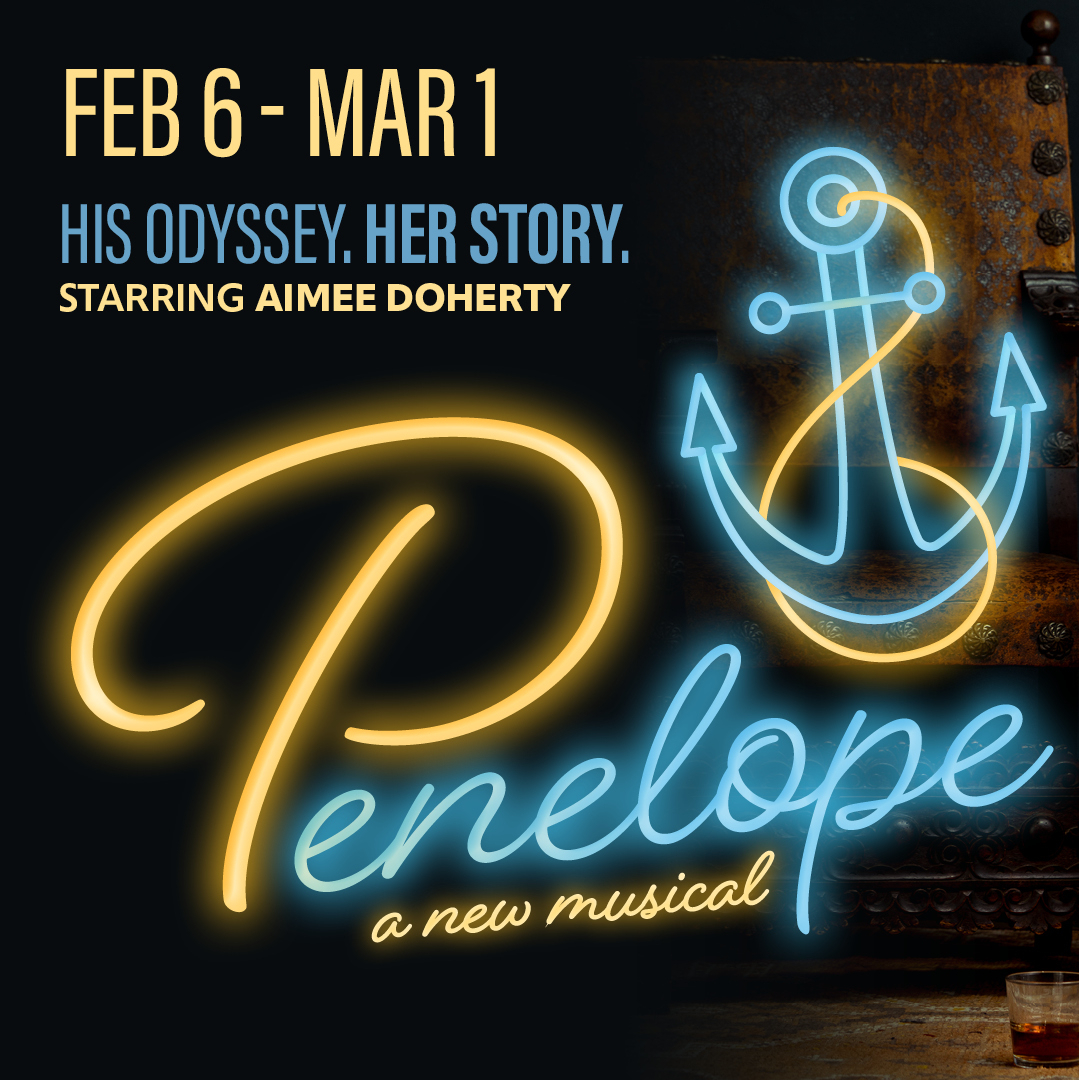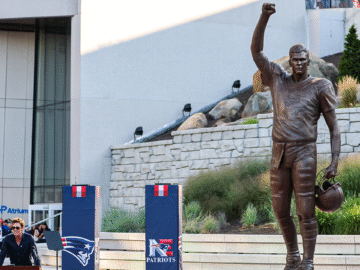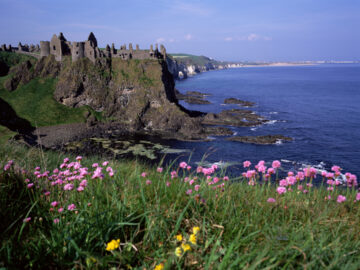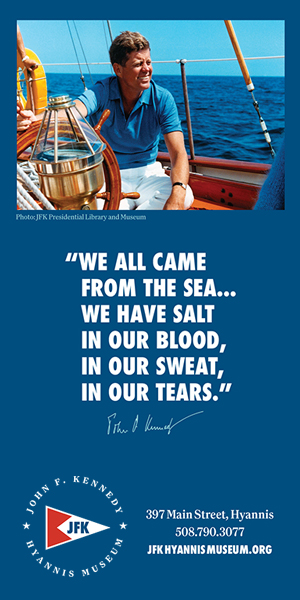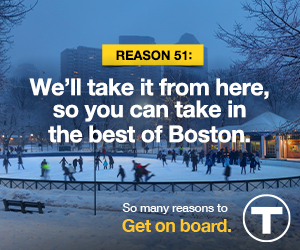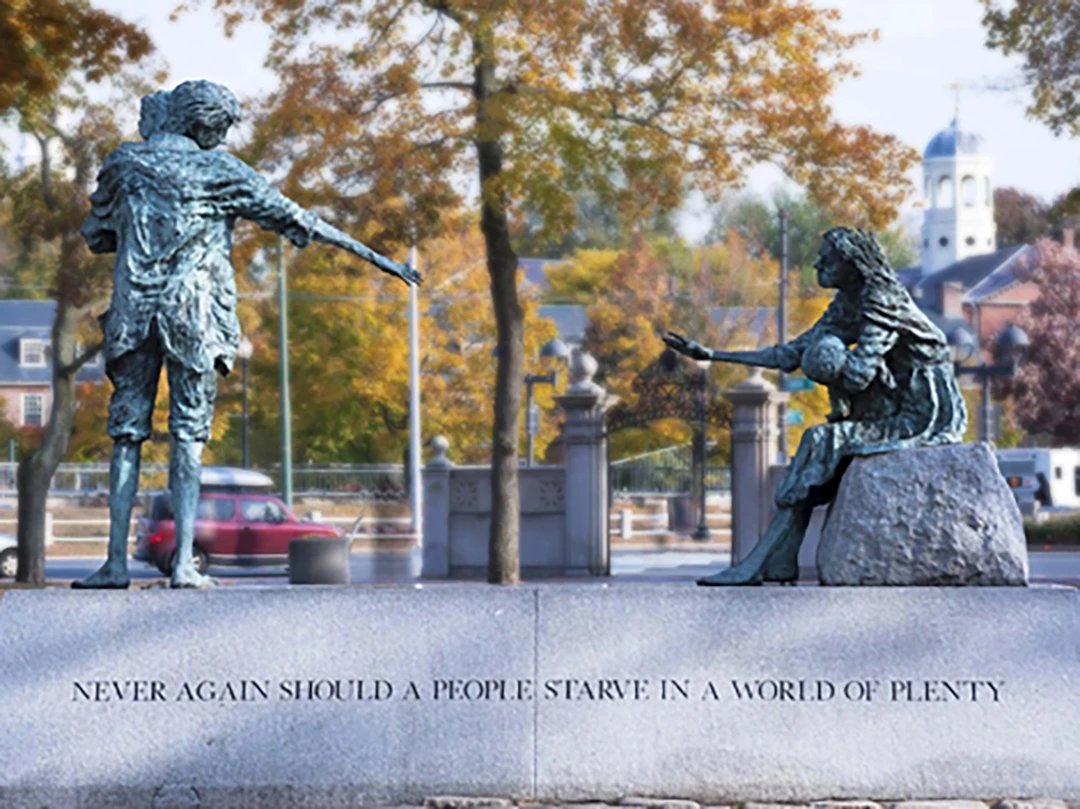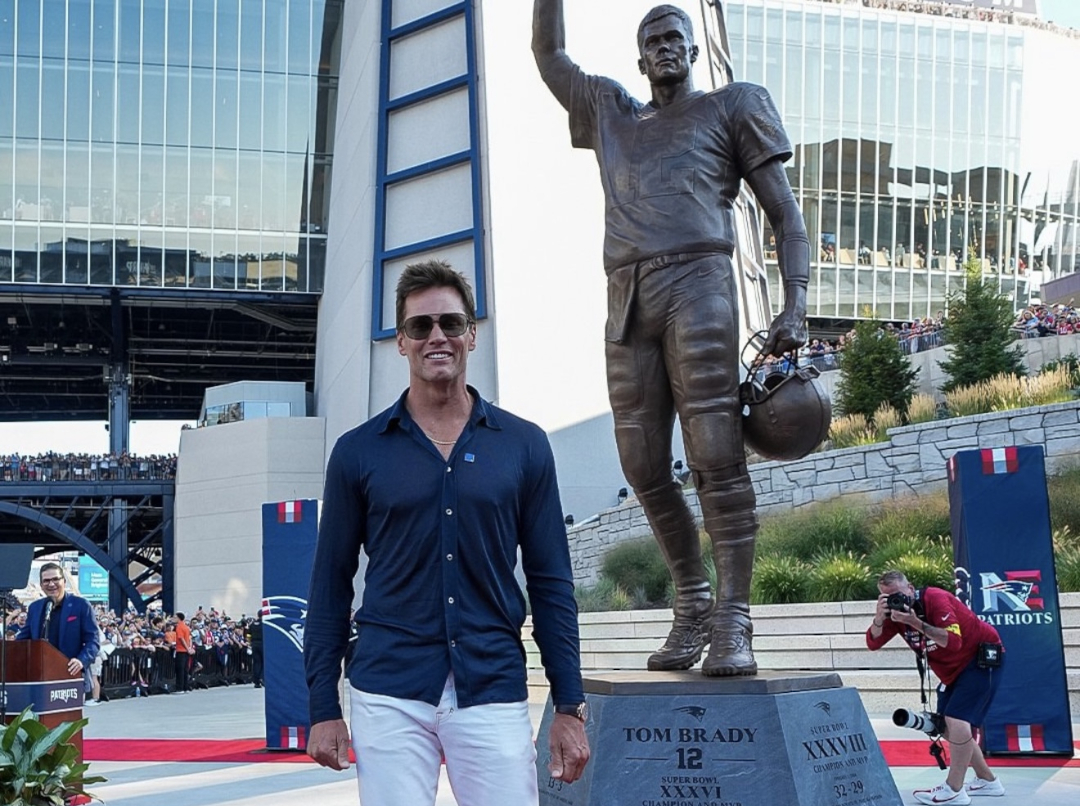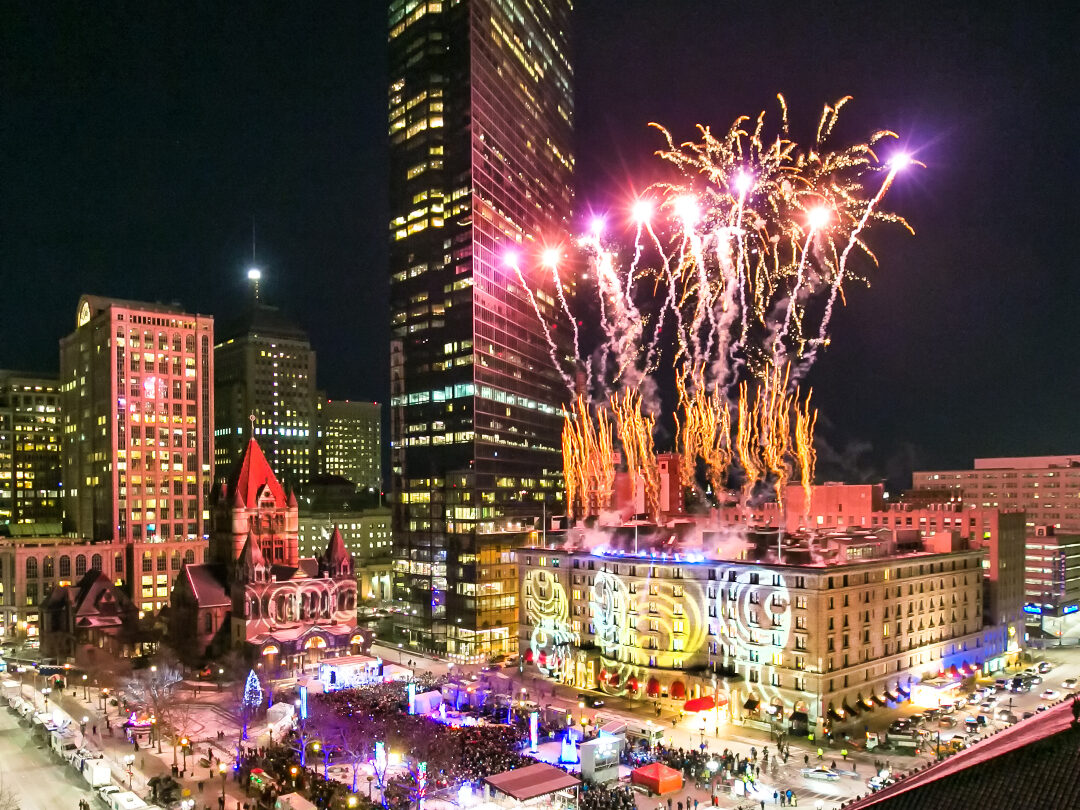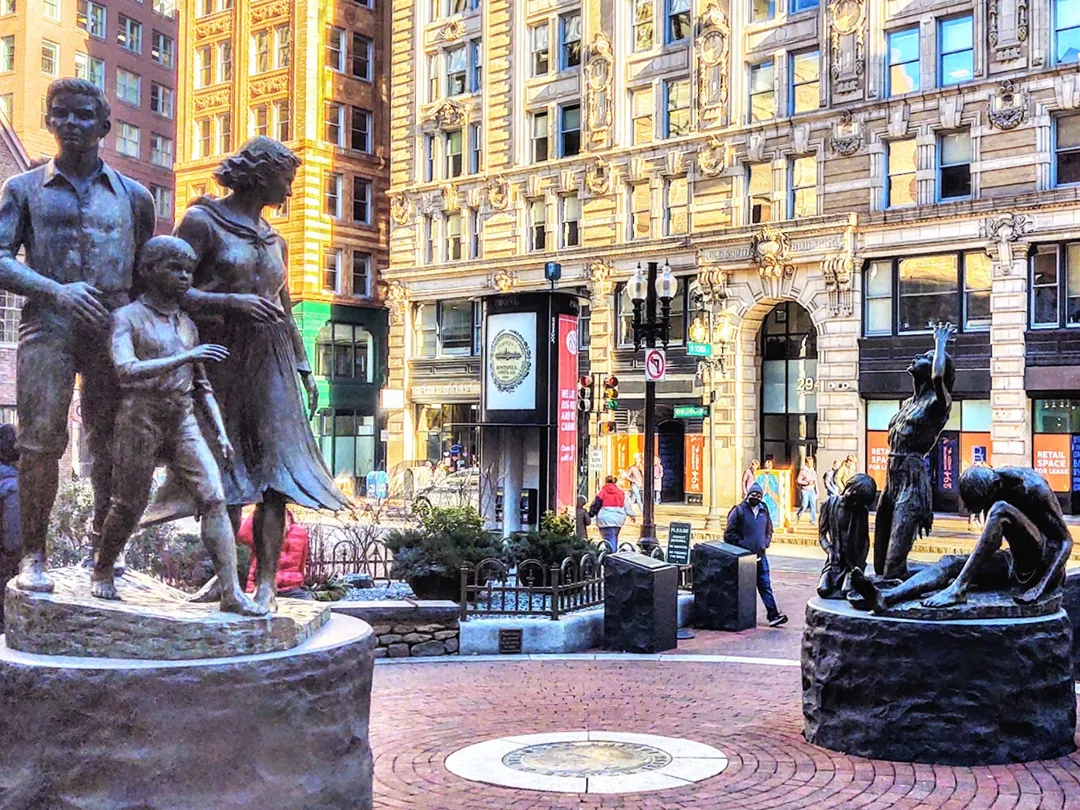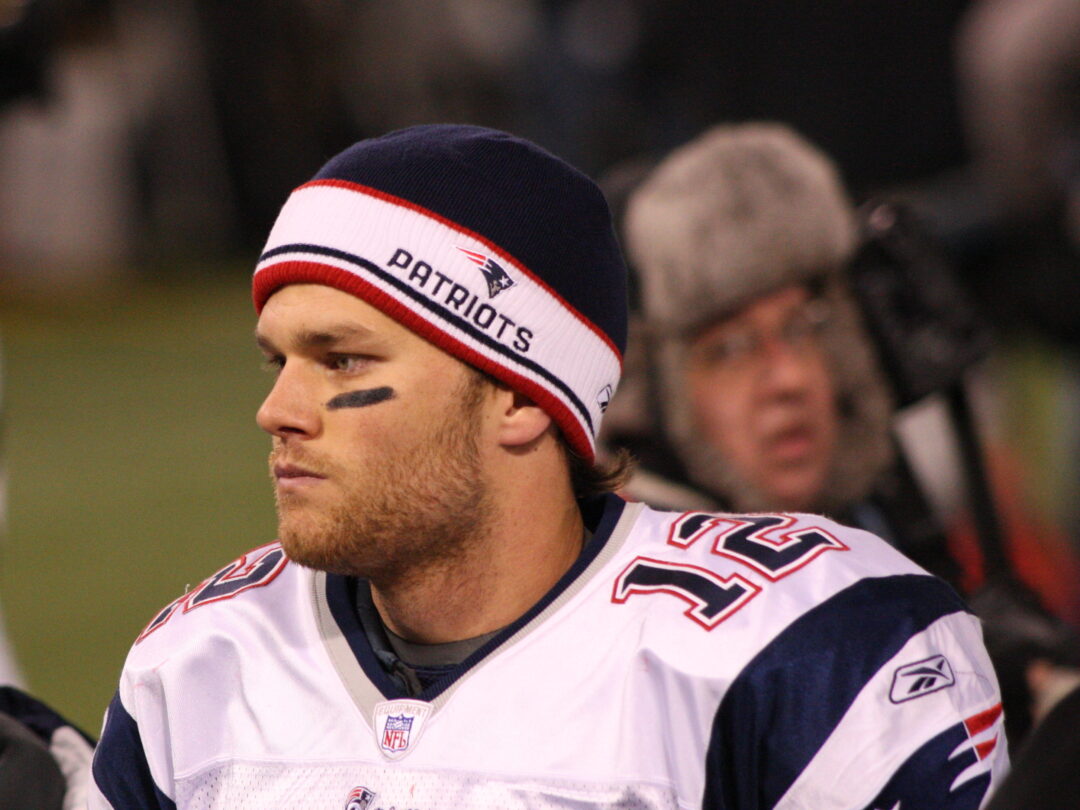Boston’s Fenway Park –An Irish-American Landmark
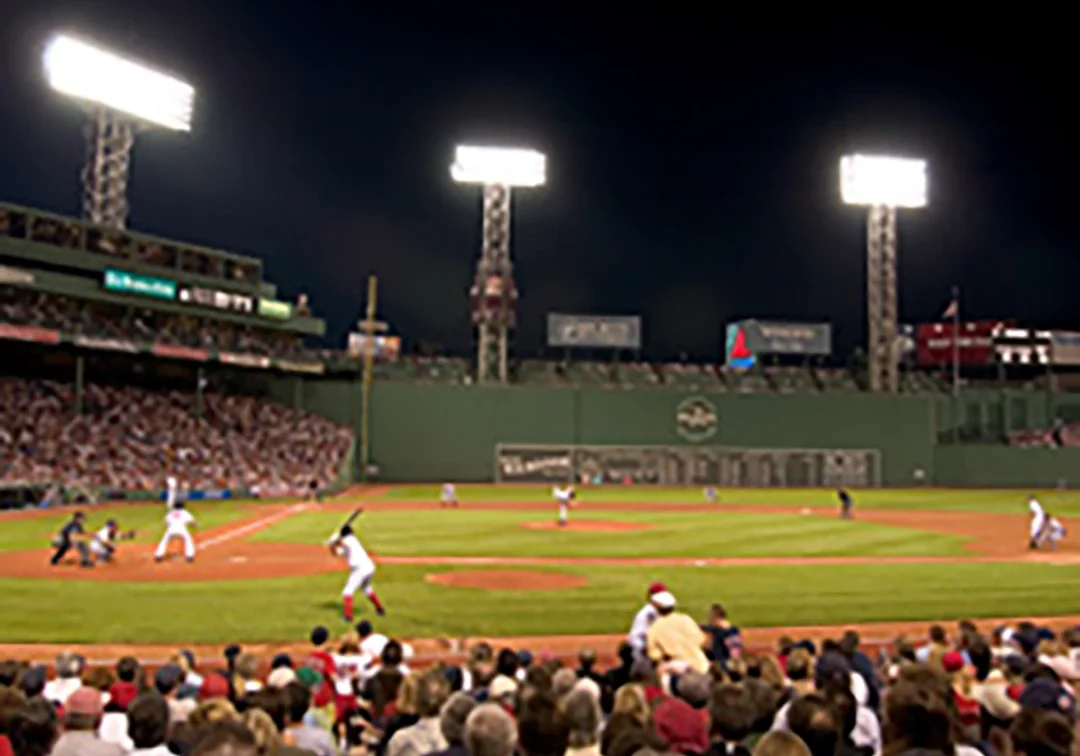
Fenway Park – home of the Boston Red Sox – is the nation’s enduring symbol of baseball, America’s favorite pastime. Officially opened on April 20, 1912, the park has outlasted all other major league baseball parks, becoming a shrine for baseball lovers everywhere.
Writing in the New Yorker Magazine in 1960, John Updike described Fenway Park as “a lyric little bandbox of a ballpark. Everything is painted green and seems in curiously sharp focus, like the inside of an old-fashioned peeping-type Easter egg.”

The contractor who built this lyrical ballpark was Irish immigrant Charles E. Logue (1858-1919), one of Boston’s renowned builders of Irish descent. Logue arrived from County Derry in 1881 at age 23, and quickly gained a reputation as a skilled carpenter and ambitious young man.
Logue’s timing was perfect when he formed the Charles Logue Building Company in 1890. The Boston Irish had finally begun to wrestle control of the city from the recalcitrant Yankees with the election of Hugh O’Brien, Boston’s first mayor, in 1884.
According to Boston historian Dennis Ryan, Charles Logue became major contractor in the Irish community, building Boston College’s campus as well as churches for the Boston Archdiocese. Mayor Patrick Collins appointed Logue to the Schoolhouse Committee in 1904, citing the need for a practical builder, and Mayor John “Honey Fitz” Fitzgerald, President John F. Kennedy’s grandfather, relied on Logue to build a “busier, better Boston.”
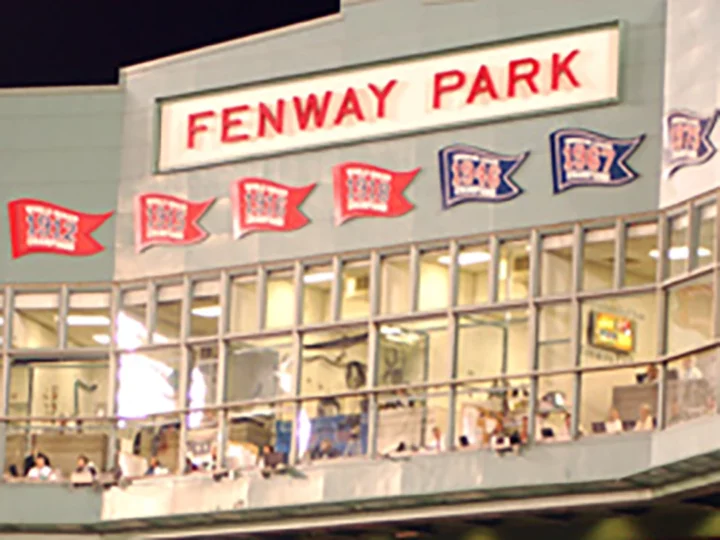
But Fenway Park would become Logue’s enduring landmark.
Ground was broken for the park in September1911, and the stadium was finished the following spring, a considerable achievement given the harsh New England winters.
According to the Boston Red Sox web site, the official opening took place April 20, 1912: “The Red Sox defeated the New York Highlanders — later known as the Yankees — before 27,000 fans, 7-6 in 11 innings. The event would have made front page news had it not been for the sinking of the Titanic only a few days before.”
Fenway remained an Irish gathering place for years to come, when there wasn’t a baseball game scheduled. On June 29, 1919, for example, Irish leader Eamon deValera held a Freedom Rally at Fenway Park that attracted nearly 60,000 people, spilling onto the infield.
The Gaelic Athletic Association (GAA) also played at Fenway over the years. On June 6, 1937 All-Ireland Football Champions from County Mayo defeated the Massachusetts team, 17 to 8. And on November 8, 1954, the All-Ireland hurling champions County Cork beat an American line-up, 37 to 28.
Today the legacy of Charles Logue remains intact. Red Sox president Larry Lucchino has a framed photograph of Charles Logue in his office, “for a little inspiration,” according to the Providence Journal.
And Boston’s Irish Heritage Trail, which depicts the city’s 300 years of Irish history, includes Fenway Park as one of the twenty stops along the Trail, joining the Rose Kennedy Garden, Irish Famine Memorial, Copley Square Park and other local landmarks.
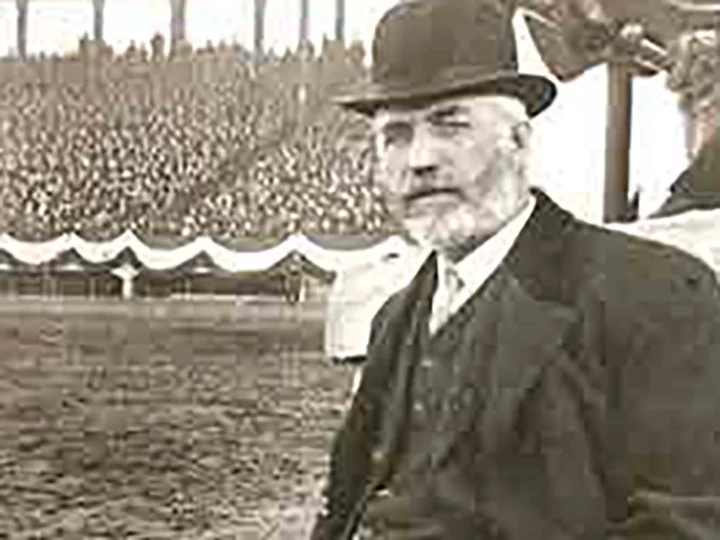
Logue’s descendants have also remained a presence in the area, thanks to Logue Engineering Company, Inc. in Hingham. According to its web site, Charles remained president of the company until his death in 1919. His son, A. Emmett Logue and grandson, A. Emmet Logue, Jr. ran the company until 1972. Great grandson Jim Logue started Logue Engineering in 1975, and his son Kevin, is now the fifth generation of Logues in the family business.
“We are very proud to have him as a part of our family and everyone is always interested to hear of our connection with Fenway Park,” Kevin Logue said.
Indeed, Bostonians everywhere are proud of his sturdy stadium that has outlasted all other major league parks in the nation. To Charles Logue and his family from everyone who loves baseball – well done!
Fenway Park is the 20th stop on Boston’s Irish Heritage Trail, a collection of public landmarks that chronicle the Irish experience in Boston from the 17th century to the present.
For more about the history of the Boston Irish read Irish Boston: A Lively Look at Boston’s Colorful Irish Past.
Research + Text, Michael Quinlin
Enjoy articles like this?
Join our mailing list and have the latest sent to your inbox.

